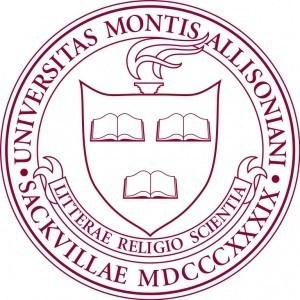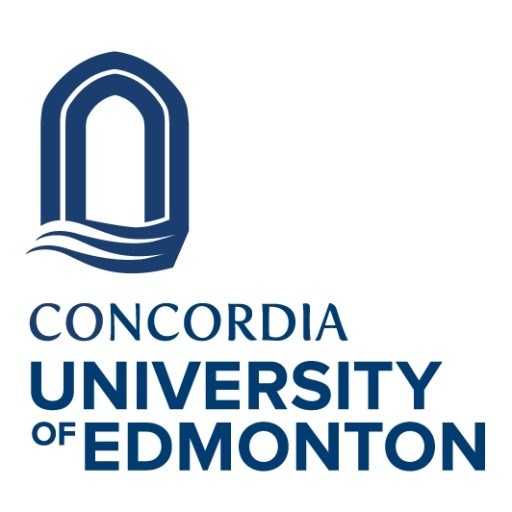Photos of university / #mountallison
The Cognitive Science program at Mount Allison is one-of-a-kind in Atlantic Canada. It involves the interdisciplinary study of the mind and seeks to further understand what the mind does and how it works. Cognitive science investigates how information is represented, processed, and transformed in both humans and machines.The study of cognitive science involves incorporating perspectives from a variety of fields including psychology, computer science, artificial intelligence, philosophy, linguistics, and neuroscience. You will take a number of specific courses in psychology, computer science, physics, philosophy, and chemistry to form the core of the program, and then select optional courses that focus on your particular interests.
Field of study: Cognitive Science
The Bachelor of Arts in Cognitive Science at Mount Allison University offers an interdisciplinary and comprehensive exploration of the mind and intelligence, combining insights from psychology, philosophy, linguistics, neuroscience, computer science, and anthropology. This innovative program is designed to provide students with a deep understanding of how mental processes work and how cognition is studied across various scientific domains. Students will engage in coursework that covers essential topics such as perception, learning, language processing, decision-making, and consciousness, enabling them to analyze complex cognitive phenomena from multiple perspectives.
Throughout the program, students are encouraged to develop critical thinking, problem-solving, and research skills, preparing them for careers in research, technology, education, healthcare, and other fields that require an understanding of human and artificial intelligence. The curriculum includes foundational courses in psychology and philosophy, advanced courses in cognitive neuroscience and computational modeling, and practical projects that involve designing experiments and analyzing data. The interdisciplinary nature of the program fosters a holistic understanding of cognition, allowing students to investigate how the brain enables perception, reasoning, and language, and how these processes can be modeled computationally.
Students also explore the ethical and societal implications of advances in cognitive science, such as artificial intelligence and brain imaging technologies. The program emphasizes hands-on learning through laboratory work, collaborative research projects, and seminars with faculty members who are experts in their fields. Graduates of the Cognitive Science program at Mount Allison will be well-equipped to pursue graduate studies or careers in academia, artificial intelligence, user experience design, mental health, speech-language pathology, and other areas where knowledge of cognitive processes is vital. With a strong foundation in scientific methods and interdisciplinary approaches, students will be prepared to contribute thoughtfully to the rapidly evolving landscape of cognitive science and related disciplines.
The Bachelor of Arts in Cognitive Science at Mount Allison University requires students to complete a total of 30 credit hours. The curriculum is designed to provide a comprehensive understanding of the interdisciplinary nature of cognitive science, integrating courses from psychology, philosophy, computer science, linguistics, and neuroscience. Students must select a series of core courses that establish foundational knowledge in the major areas of the field, including cognitive psychology, computational modeling, philosophy of mind, and neural science. In addition to core courses, students are encouraged to choose electives that complement their interests within the broader field, such as artificial intelligence, language processing, perception, and consciousness studies. The program emphasizes both theoretical understanding and applied skills, often involving practical laboratory work and research projects. Students are typically required to complete a capstone project or thesis in their final year, demonstrating their ability to synthesize knowledge and conduct independent research. To fulfill the requirements for graduation with a major in Cognitive Science, students need to maintain a minimum GPA as specified by the university, usually around 2.0 or higher. The program aims to prepare students for graduate studies or careers in areas such as research, technology development, healthcare, and education. Throughout the program, students benefit from close interaction with faculty members who are experts in various disciplines related to cognition, providing mentorship and opportunities for collaborative research. The curriculum also encourages interdisciplinary thinking and communication skills essential for analyzing complex cognitive phenomena. Overall, the program combines rigorous coursework, research opportunities, and practical experiences to equip graduates with a robust understanding of cognitive science and its applications in real-world settings.
The Mount Allison University offers a range of financing options for students enrolled in the Cognitive Science program to support their educational expenses. Students can explore various sources of funding, including university scholarships, bursaries, and awards that are available based on merit, financial need, or specific criteria related to the program or student background. The university provides numerous entrance scholarships for incoming students, which are often awarded automatically based on academic achievement and other accomplishments. Additionally, continuing students may qualify for in-course scholarships and awards, recognizing academic excellence and contributions to campus life.
Apart from institutional awards, students are encouraged to seek external funding opportunities such as government grants, private scholarships, and sponsorships from organizations aligned with their interests or backgrounds. The Canadian government offers financial aid programs, including Canada Student Grants and loans, which can significantly assist students in managing the costs associated with their studies. Mount Allison University also provides work-study programs, allowing students to gain practical experience and earn money to offset their educational expenses through part-time employment opportunities on campus.
Financial planning is an important aspect of university life, and students are advised to consult with the university's Student Financial Services Office for personalized advice and assistance in securing funding. The office provides information on application procedures, deadlines, and eligibility criteria for various financial aid programs. Furthermore, some students may explore private student loan options if additional funding is required. Mount Allison supports affordability initiatives aimed at making education accessible, including payment plans and emergency bursaries for students facing unforeseen financial difficulties.
In summary, students enrolled in the Cognitive Science program can access a comprehensive set of financing resources provided by Mount Allison University, complemented by external sources, to facilitate their academic journey. These options are designed to reduce financial barriers and enable students to focus on their studies, research, and extracurricular activities, thereby promoting academic success and personal development.
The Cognitive Science program at Mount Allison University is an interdisciplinary field that explores the nature of the mind, intelligence, and consciousness through multiple perspectives, including psychology, neuroscience, philosophy, linguistics, and computer science. This program aims to provide students with a comprehensive understanding of how cognitive processes such as perception, language, reasoning, and learning operate, and how these processes can be modeled and analyzed using scientific methods. The curriculum typically includes foundational courses in psychology, philosophy of mind, computational modeling, and neuroscience, alongside specialized electives that allow students to tailor their studies to specific interests within cognitive science.
Students are encouraged to develop strong analytical skills, critical thinking, and empirical research techniques through coursework and research projects. The program often emphasizes experiential learning, including opportunities for internships, research assistantships, and collaborations with faculty members engaged in cutting-edge research. Graduates of the program are well-prepared for careers in research, technology, education, or continue their studies in graduate or professional programs related to psychology, neuroscience, artificial intelligence, or cognitive science itself. Mount Allison University also fosters a collaborative academic environment, providing students with access to modern laboratories and resources necessary for experimental work and data analysis.
Overall, the Cognitive Science program at Mount Allison University aims to produce graduates who are capable of bridging theories and applications across disciplines, and who can contribute to advancing our understanding of the human mind and intelligent systems in various professional contexts.

